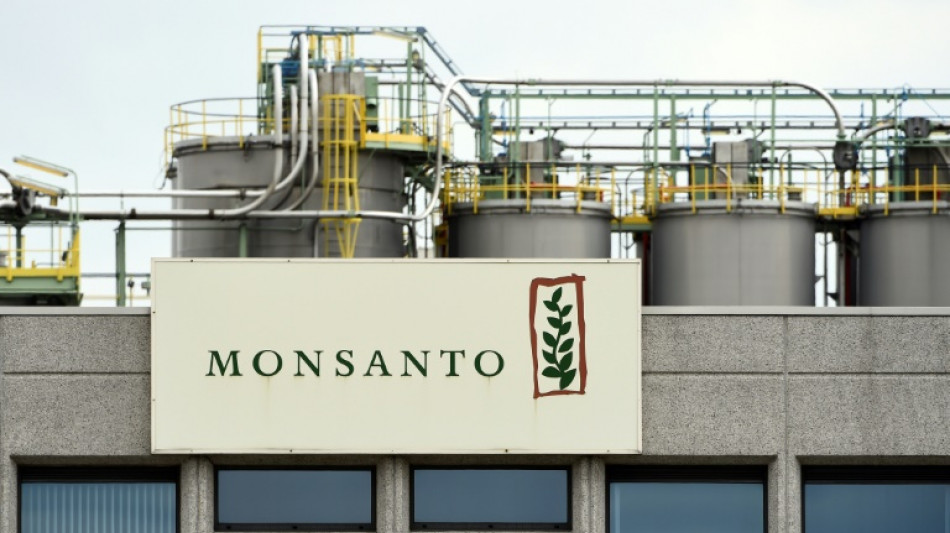
-
 Japan PM's tax giveaway roils markets and worries voters
Japan PM's tax giveaway roils markets and worries voters
-
Amid Ukraine war fallout, fearful Chechen women seek escape route

-
 Rybakina surges into Melbourne semis as Djokovic takes centre stage
Rybakina surges into Melbourne semis as Djokovic takes centre stage
-
Dollar struggles to recover from losses after Trump comments

-
 Greenland blues to Delhi red carpet: EU finds solace in India
Greenland blues to Delhi red carpet: EU finds solace in India
-
Will the EU ban social media for children in 2026?

-
 Netherlands faces 'test case' climate verdict over Caribbean island
Netherlands faces 'test case' climate verdict over Caribbean island
-
Rybakina stuns Swiatek to reach Australian Open semi-finals

-
 US ouster of Maduro nightmare scenario for Kim: N. Korean ex-diplomat
US ouster of Maduro nightmare scenario for Kim: N. Korean ex-diplomat
-
Svitolina credits mental health break for reaching Melbourne semis

-
 Japan's Olympic ice icons inspire new skating generation
Japan's Olympic ice icons inspire new skating generation
-
Safe nowhere: massacre at Mexico football field sows despair

-
 North Korea to soon unveil 'next-stage' nuclear plans, Kim says
North Korea to soon unveil 'next-stage' nuclear plans, Kim says
-
French ex-senator found guilty of drugging lawmaker

-
 US Fed set to pause rate cuts as it defies Trump pressure
US Fed set to pause rate cuts as it defies Trump pressure
-
Sleeping with one eye open: Venezuelans reel from US strikes

-
 Venezuela's acting president says US unfreezing sanctioned funds
Venezuela's acting president says US unfreezing sanctioned funds
-
KPop Demon Hunters star to open Women's Asian Cup

-
 Trump warns of 'bad things' if Republicans lose midterms
Trump warns of 'bad things' if Republicans lose midterms
-
Russian strikes in Ukraine kill 12, target passenger train

-
 With Maduro gone, Venezuelan opposition figure gets back to work
With Maduro gone, Venezuelan opposition figure gets back to work
-
Celebrities call for action against US immigration raids

-
 Rubio to warn Venezuela leader of Maduro's fate if defiant
Rubio to warn Venezuela leader of Maduro's fate if defiant
-
Denver QB Nix 'predisposed' to ankle injury says coach

-
 Lula, Macron push for stronger UN to face Trump 'Board of Peace'
Lula, Macron push for stronger UN to face Trump 'Board of Peace'
-
Prass stunner helps Hoffenheim go third, Leipzig held at Pauli

-
 Swiss Meillard wins final giant slalom before Olympics
Swiss Meillard wins final giant slalom before Olympics
-
CERN chief upbeat on funding for new particle collider

-
 Trump warns US to end support for Iraq if Maliki returns
Trump warns US to end support for Iraq if Maliki returns
-
Judge reopens sexual assault case against goth rocker Marilyn Manson

-
 South Korea's ex-first lady to learn verdict in corruption case
South Korea's ex-first lady to learn verdict in corruption case
-
Rosenior dismisses Chelsea exit for 'untouchable' Palmer

-
 Markram powers South Africa to win over West Indies
Markram powers South Africa to win over West Indies
-
Vladimir Padrino: Venezuela's military power broker

-
 Amazon closing Fresh and Go stores in Whole Foods push
Amazon closing Fresh and Go stores in Whole Foods push
-
Koepka nervous about game and fans in PGA Tour return

-
 Trump's Iowa trip on economy overshadowed by immigration row
Trump's Iowa trip on economy overshadowed by immigration row
-
Dortmund coach says Inter Milan are improved under Chivu

-
 US border chief in Minneapolis as Trump tries to calm crisis
US border chief in Minneapolis as Trump tries to calm crisis
-
What to know about America's colossal winter storm

-
 Iran warns against 'instability' after US strike group arrives
Iran warns against 'instability' after US strike group arrives
-
GM reports quarterly loss but boosts shareholder returns

-
 US banks fight crypto's push into Main Street
US banks fight crypto's push into Main Street
-
NFL Bills make offensive coordinator Brady new head coach

-
 TikTok settles hours before landmark social media addiction trial
TikTok settles hours before landmark social media addiction trial
-
Newcastle braced for 'ultimate test' against PSG after storm disruption

-
 Brook blitz ends Sri Lanka's unbeaten home run, England clinch series
Brook blitz ends Sri Lanka's unbeaten home run, England clinch series
-
LVMH 2025 net profit drops 13% to 10.9 bn euros

-
 Philip Glass pulls Kennedy Center premiere after Trump takeover
Philip Glass pulls Kennedy Center premiere after Trump takeover
-
Slot says Liverpool must fix 'very bad cocktail'


Monsanto: object of Bayer desire despite GMO fears
German pharmaceutical giant Bayer sees in agroindustry giant Monsanto a gem worth at least $62 million for its dominant global position selling seeds sought by farmers of corn, soybeans, cotton and other commodity crops.
But for the Green movement, especially in Europe, Monsanto turns stomachs for unstinting promotion of genetically modified crops and its widely used herbicide Roundup, often feared as a possible carcinogen.
The merger is still under discussion -- Monsanto rejected the price as too low on Tuesday, but said it is willing to keep talking.
But it raises questions across an industry that is pushing the frontiers of biochemistry amid great nervousness, and consolidating into just a handful of very powerful firms.
- What is Monsanto? -
St. Louis, Missouri-based Monsanto was established by pharmacist John Queeny in 1901 to produce saccharine. Queeny named the company after his wife Olga Monsanto Queeny.
By the 1940s, the company was producing farm-oriented chemicals, particularly the widely used herbicide 2,4-D, and slowly became a US household name.
Combined with another dangerous chemical, 2,4-D was used to make the notorious Vietnam War-era defoliant Agent Orange.
In 1976, it launched probably its most famous product, Roundup, the world's most widely used herbicide. Its active chemical is glyphosate.
The company began in the 1970s looking at the crops that the herbicides were protected, building cell and molecular biology units. In 1982, its scientists were the first to genetically modify a plant cell.
Monsanto then started buying other seed companies and withing five years began field trials of genetically modified seeds.
It eventually developed soybean, corn, cotton, canola and other crops that were genetically engineered to be tolerant of Roundup.
In 1994, Monsanto also became the first to begin selling the biotechnology-based hormone for dairy cows, rBST and rBGH, which was used across the United States to boost milk production. The two have been banned by many other major dairy producers.
- Why is Monsanto so valuable to Bayer? -
Monsanto is by far the world's leading producer of genetically modified crop seeds, and in many of its seed lines it has a dominant market position.
According to Farm Journal, it had 35.5 percent of the market for corn in the United States in 2014. It had a 28 percent share for soybeans, behind DuPont.
The company owns around 1,700 patents. In 1991, it lost its patent on glyphosate herbicide, but retains a huge market share in part by having marketed its "Roundup-Ready" genetically modified seeds.
Monsanto also owns one of the leading data analytics firms for farmers, Climate Corp.
- What makes Monsanto so controversial? -
Many people and countries, especially in Europe, have not accepted the use of genetically modified organisms -- which they label "frankenfoods."
They say GMO seeds are dangerous to introduce to the farm and food system generally, and foods produced from GMO crops could turn out unsafe to eat.
In addition, Monsanto's strong market position, critics say, can leave farmers dependent on it because they cannot reproduce Monsanto crops with their own seeds due to the company's patents.
In addition, critics say the herbicides the company sells are dangerous to human health, and some have been banned in certain countries.
A merger with Bayer thus could give the combined company even more power in the market, with farmers already facing consolidation among suppliers.
In December, DuPont and Dow Chemical announce plans to merge, and in China National Chemical Corp. or ChemChina, made a $43 billion offer for Syngenta.
M.Odermatt--BTB




